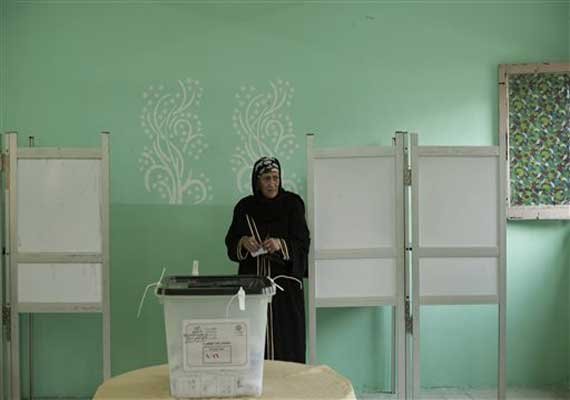
Cairo: Egypt is gearing up for parliamentary elections, the second since the 2011 uprising. But with the once-triumphant Muslim Brotherhood now banned from public life and a new military-backed government suppressing public expression, analysts and activists say the next legislature is likely to be a rubber-stamp body that further solidifies the power of President Abdel-Fattah el-Sissi.
Political parties—those that are eligible to run—are weak with little popular following. They are hurt even more by the law governing how the election will be run. And there is a general atmosphere against any politician raising criticism, with many Egyptians seeking stability after nearly four years of turmoil that has devastated the economy.
“There's hostility to the idea of a politically active society in general. All forms of political collective action have been either made illegal or have been simply dubbed unpatriotic,” said Ziad Akl, an analyst at the Ahram Center for Political and Strategic Studies.
All the country's media, he said, demonizes the idea of opposition “as a form of disunity.”
A date for elections has not been set after repeated delays, though the Presidency on Monday said they would be in the first quarter of next year. Egypt's government on Wednesday is discussing a political districting law, which is needed for preparations to start.
The vote will mark the final step in what was billed as a transition to democracy, but what critics see as the rapid retrenchment of authoritarian rule less than four years after President Hosni Mubarak was toppled by a pro-democracy uprising.
The 2011 election saw candidates from across the political spectrum, from ultra-conservative Islamists to leftwing youths, vying for seats. Egyptians stood in line for hours to cast their votes—many for the first time in their lives—and the Muslim Brotherhood won the legislature's largest bloc.
This time around, the Brotherhood is banned as a terrorist group—a designation it denies—and many of its top leaders are in jail. A new law that requires prior permits for demonstrations has all but crushed street politics and civil society fears increasing restrictions.
The restrictions prompted the Carter Center—an international democracy promotion group led by former President Jimmy Carter—to close its Cairo office, saying the upcoming vote is “unlikely to advance a genuine democratic transition.”
Egypt has not had a parliament since a court decision dissolved the legislating lower house in 2012 on a technicality, just days before the Brotherhood's candidate, Mohammed Morsi, was elected president.
After massive protests against his yearlong presidency, Morsi was ousted by el-Sissi, then military chief, who vowed to right Egypt's troubled democratic transition. Since then, authorities have cracked down on Morsi's supporters, killing hundreds in street clashes and arresting nearly 20,000 people. The wave of arrests has also netted non-Islamist activists who were at the forefront of the 2011 uprising against Mubarak.




















